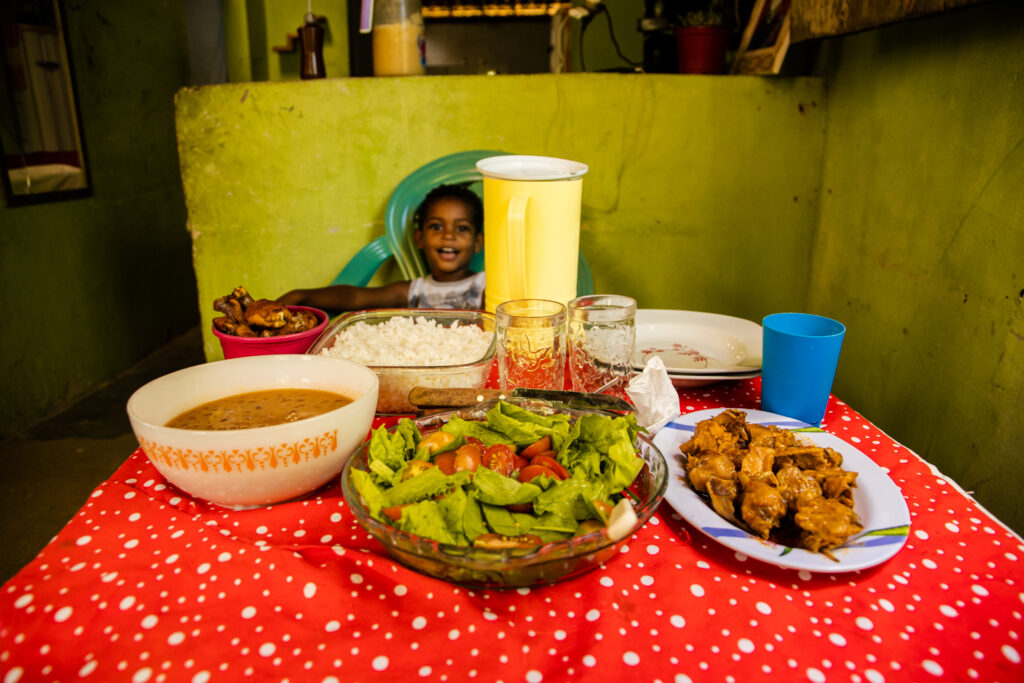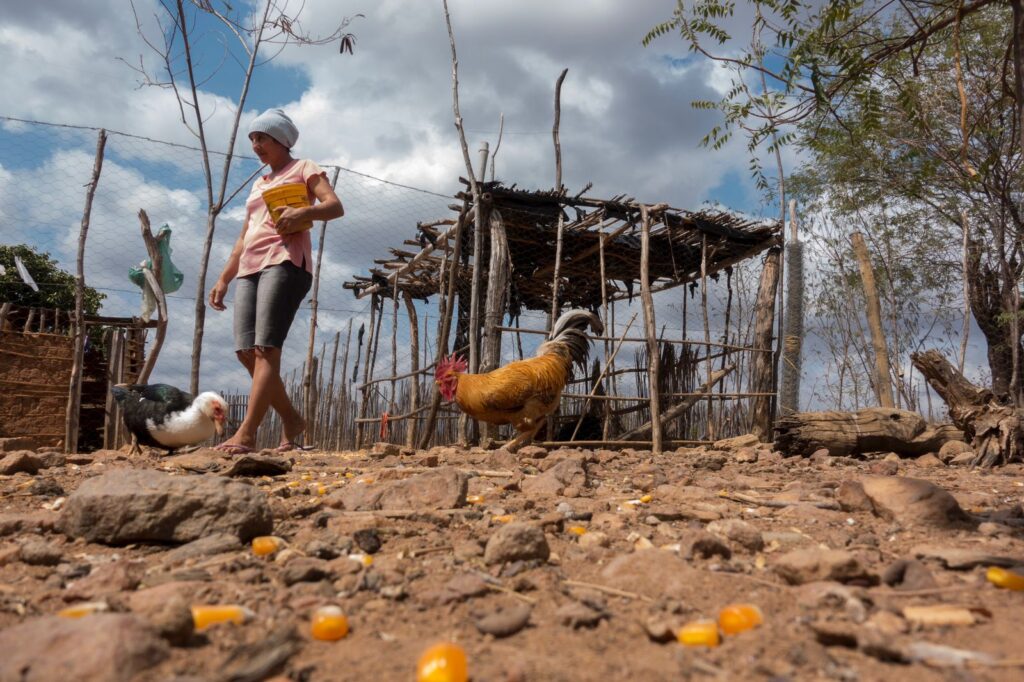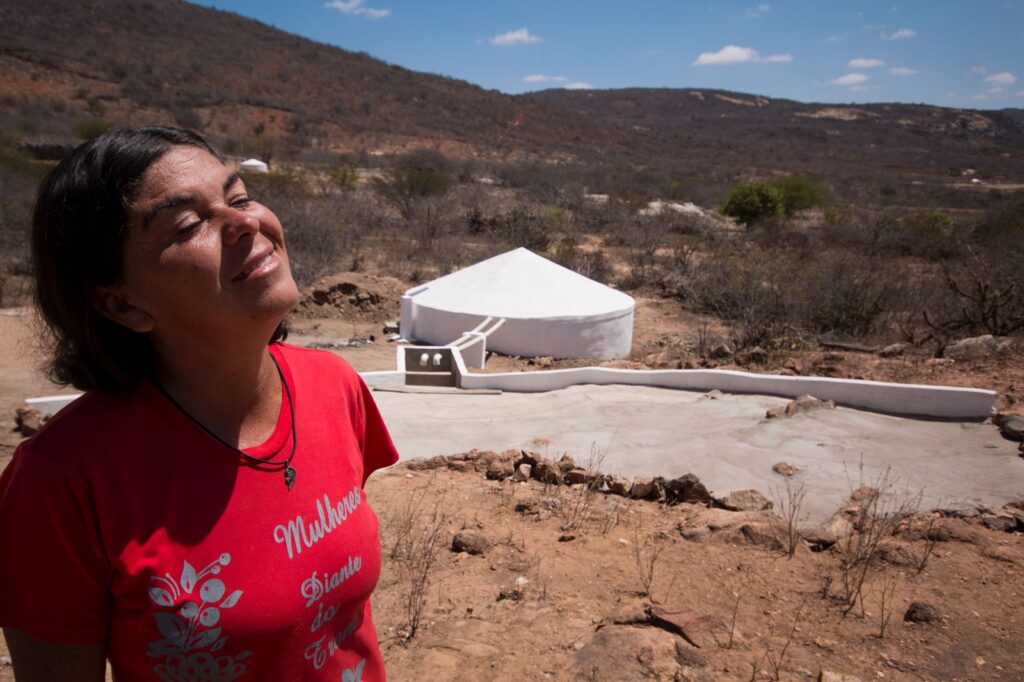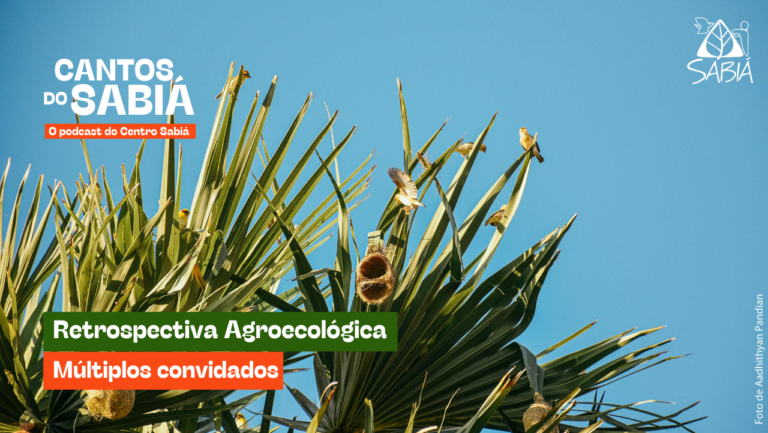Lula Government launches policies and projects at major event in Recife
Farmers from the countryside and the city filled the Geraldao in celebration for the resumption of policies for family agriculture and agroecology
Rosa Sampaio, Sabiá Center journalist

Wednesday (22) of celebrations for farmers in Pernambuco, with the visit of President Lula and his entourage to re-launch the Food Purchase Program (PAA), by means of a Provisional Measure, at the crowded Geraldão Gymnasium in Recife. Women and men from the countryside and the city accompanied the announcements and the signing of the decrees of the takeovers and of the new public policies for family agriculture and Agroecology.
Farmers from the countryside and the city, representatives of organizations and social movements, such as the organizations that make up the Semi-Arid Articulation (ASA) in Pernambuco, as well as members of the Executive Coordination of ASA, of the ATER Network, and of the National Articulation of Agroecology (ANA) in the state, heard the president’s commitment to fight hunger and bring dignity to the people who produce food for Brazilians, through the fair commercialization of healthy, poison-free food.
The new PAA comes with a readjustment in the individual amount that can be commercialized by family farmers, easier access to indigenous people, traditional peoples and communities, and greater participation of women in the execution of the program in all modalities offered. The ceiling will be increased from R$12,000 to R$15,000 in the Simultaneous Donation, Stock Formation, and Direct Purchase modalities.

Another goal of the Program is to increase the percentage of women farmers from 46% to at least 50%, through the Rural Women’s Productive Economic Organization Program, as announced by Minister Paulo Teixeira, from the Agrarian Development and Family Agriculture portfolio, “the women will have their own program to commercialize their products, guaranteeing the purchase of food produced in their productive backyards.
Minister Paulo Teixeira also reinforced the importance of municipalities and states buying 30% of the total resources for school meals directly from family farms, through the National School Meals Program (PNAE). On the occasion, a decree was also signed to reestablish the National Council for Sustainable Rural Development – CONDRAF.
Semi-arid – During the announcement of the PAA resumption, the Socio-environmental director of the BNDES, Tereza Campello, launched the project “Sowing Climate Resilience in Rural Communities of the Northeast”, together with the International Fund for Agricultural Development (FIDA), aimed at the rural population of the Brazilian semi-arid region.

According to the director, the project aims to impact about one million people, of which 40% will be women and 50% young people, reaching an area of about 84 thousand hectares and restoring degraded ecosystems. 21,000 cisterns and 16,000 domestic wastewater treatment and reuse units will be implemented. “This project is inspired by the Brazilian experiences in fighting poverty and hunger from 2003 to 2015 and by the programs of Articulação Semiárido, ASA, our partner. We bring this knowledge together to guarantee food security and sovereignty for rural communities in the Northeastern semi-arid region, prepare these communities to face climate change in the Caatinga and reduce carbon emissions”, explained Tereza Campello
The project, which will still go to the Senate, has US$129.5 million, about 1 billion reais, at current exchange rates, raised with IFAD. “Being approved, it will be executed together with the states. It will be one billion reais for 250 thousand family farmers, with productive backyards and 21 thousand cisterns, on the World Water Day (03/22),” announced the BNDES’ director.
Still according to Tereza Campello, the expectation is that the project will become a reference of sustainable agriculture for several rural workers around the world who, just like the Caatinga, also suffer with the adverse effects of climate change. In this way, it foresees national and international routes (Latin America and Africa) of exchange between male and female farmers from similar biomes.
Nothing found.




